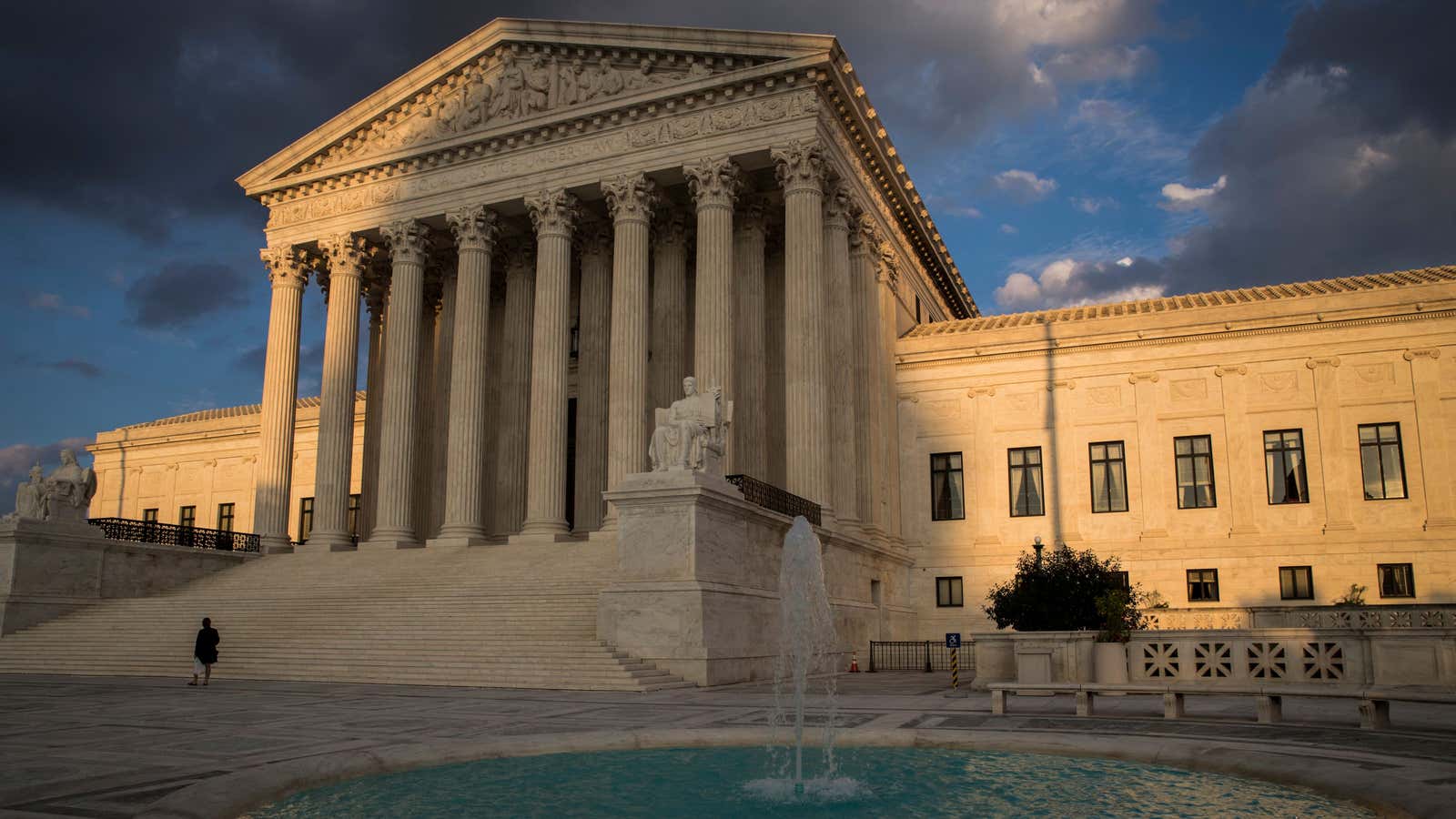This item has been corrected.
In the long list of Donald Trump’s incendiary claims about immigration, a particularly extreme example appeared yesterday on Twitter: The US president described immigrants generally as trying to “invade our country” and called for mass deportations with “no Judges or Court Cases.”
Many of the people arriving at the United States’ southern border are asylum seekers. And according to the UN’s Convention on the Rights of Refugees of 1951, and the Protocol subsequently ratified by the US in 1967, there are legitimate cases in which a refugee might breach a country’s immigration law in order to apply for asylum (pdf, p.3):
The Convention further stipulates that, subject to specific exceptions, refugees should not be penalized for their illegal entry or stay. This recognizes that the seeking of asylum can require refugees to breach immigration rules. Prohibited penalties might include being charged with immigration or criminal offences relating to the seeking of asylum, or being arbitrarily detained purely on the basis of seeking asylum.
At the very least, this means even undocumented immigrants should be given the chance to request asylum—which, were they to receive it, would justify crossing the border without prior permission.
Granted, the Trump administration doesn’t think much of the United Nations. But even if you ignore international agreements on how to treat refugees, the US still cannot imprison or sentence undocumented immigrants for breaking the law without a judge or court case.
In the 1896 case Wong Wing vs. US, the Supreme Court ruled that even an immigrant who had broken immigration law still had the right to make his case to a judge before being “deprived of life, liberty, or property.”
[A]ll persons within the territory of the United States are entitled to the protection guarantied by those amendments, and that even aliens shall not be held to answer for a capital or other infamous crime, unless on a presentment or indictment of a grand jury, nor be deprived of life, liberty, or property without due process of law.
The court decision establishes that the US Constitution’s Fifth and Sixth amendments—which grant the right to a public trial and prohibit detention without due legal process—extend to all people on US soil.
Correction (June 25, 6:30 EST): A previous headline incorrectly dated the decision to 1846. It was issued in 1896.
